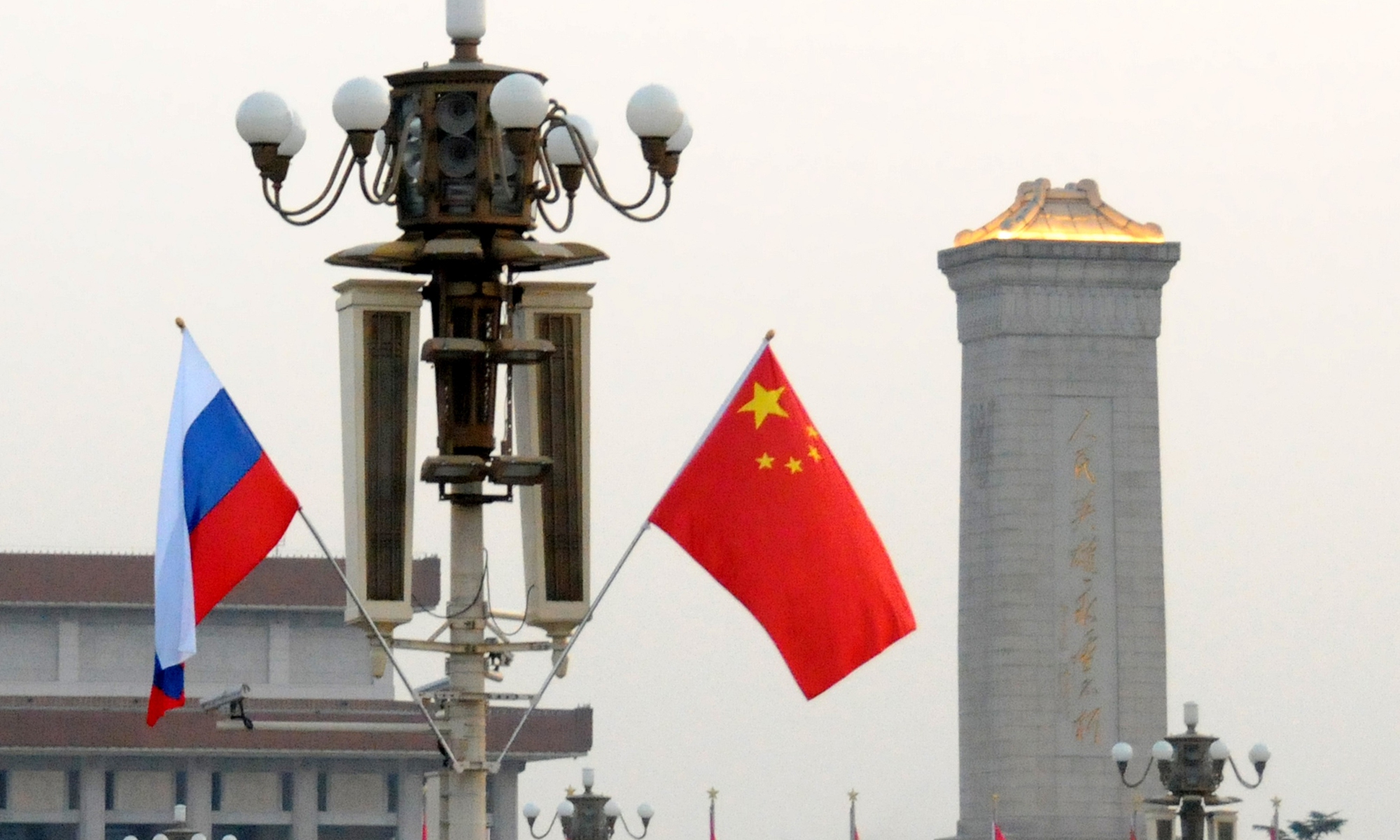
China-Russia Photo: VCG
A view recently emerged from the West argues that China's support for Russia, particularly the huge energy deals signed between Beijing and Moscow earlier this month, has emboldened the latter to take risks regarding the Ukrainian crisis. Such an argument misinterprets the meaning of China-Russia cooperation. It is part of the same old attacks from some in the West on China, Russia, and their relations.
For example, Gordon Chang, notorious for his "China collapse" theory, said in an interview on Sunday that China "has just given Putin the green light to invade [Ukraine]." He argued the recently signed China-Russia energy deals are "basically [China] backstopping the Russians to do whatever they want in Eastern Europe." Three days before that, Chang published an article in The Hill, claiming that "China is making sanctions on Russia irrelevant."
China and Russia have a long history of close cooperation, including in the energy sector. From Beijing's point of view, the energy trade with Moscow is driven by the need for imported energy to sustain its fast economic growth. China's demand for cleaner energy sources like gas is also increasing to achieve its carbon emissions peak and carbon neutrality goals.
The twisted understanding of China-Russia energy cooperation conforms to the prevailing interpretation of the current China-Russia relations in the West: The partnership between the two countries is simply a political "marriage of convenience," and the cooperation between them intends to gain each other's support on political issues, be they domestic and international.
China and Russia support each other on fighting against external interference and jointly resist threats to their national security.
Yang Jin, an associate research fellow at the Institute of Russian, Eastern European, and Central Asian Studies under the Chinese Academy of Social Sciences, told the Global Times that it makes no sense to blame China-Russia cooperation for the intensified situation between Moscow and Kiev. Instead, it is the US that keeps agitating for a war, because it will be the only one benefiting from a head-on conflict, not Russia, Ukraine, or Europe.
According to Yang, some Western forces are distorting the facts just to drive a wedge between China and Russia. "China and Russia are engaging in active cooperation in many aspects, and high-level contacts between the two are also very close. This has made some in the West worry about the effectiveness of sanctions or suppression of China and Russia. Therefore, these forces take every opportunity to provoke conflicts between Beijing and Moscow," said Yang.
However, it is difficult for them to achieve their goals. On the one hand, this is because China and Russia take similar or even the same positions on many issues. Such similarity makes it natural for the two countries to keep getting closer. This is the basis for strategic cooperation between Beijing and Moscow.
Yang believes that there is a contradiction in how to deal with Russia in the West. To be more specific, the goals of the West contradict how it tries to achieve them. "The West is exerting tremendous strategic pressure on Russia while expecting Russia to ease relations with it or to separate China from Russia," Yang noted.
Against such a backdrop, no matter how malicious some Western forces interpret China-Russia cooperation and Beijing's support for Moscow, they won't shake the rock-solid determination of the two countries to safeguard the interests of both as well as regional peace and development through cooperation.

